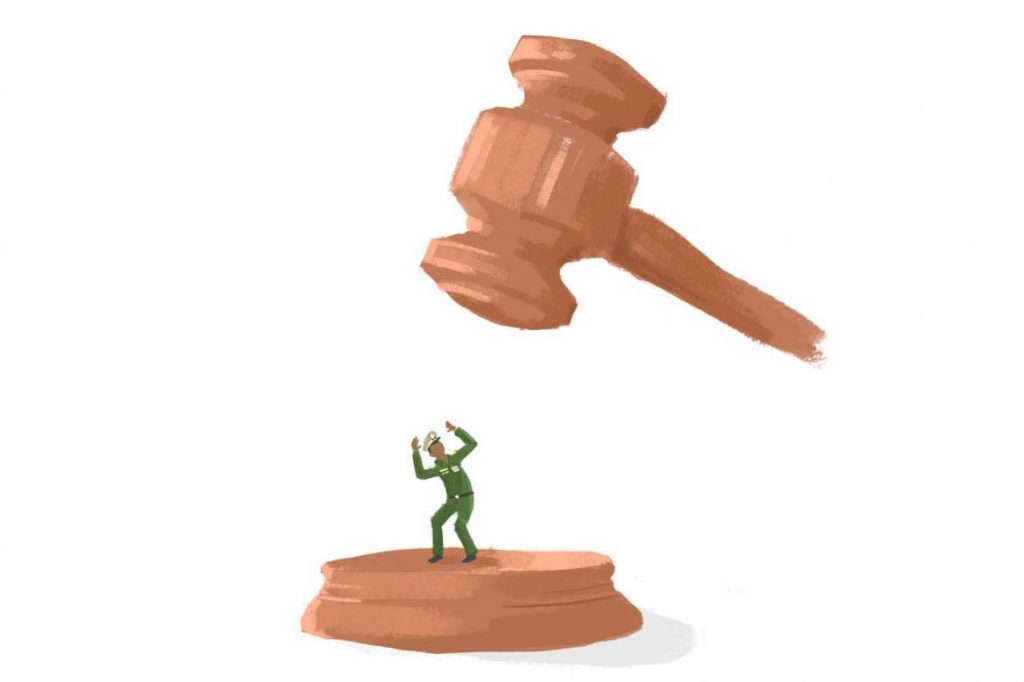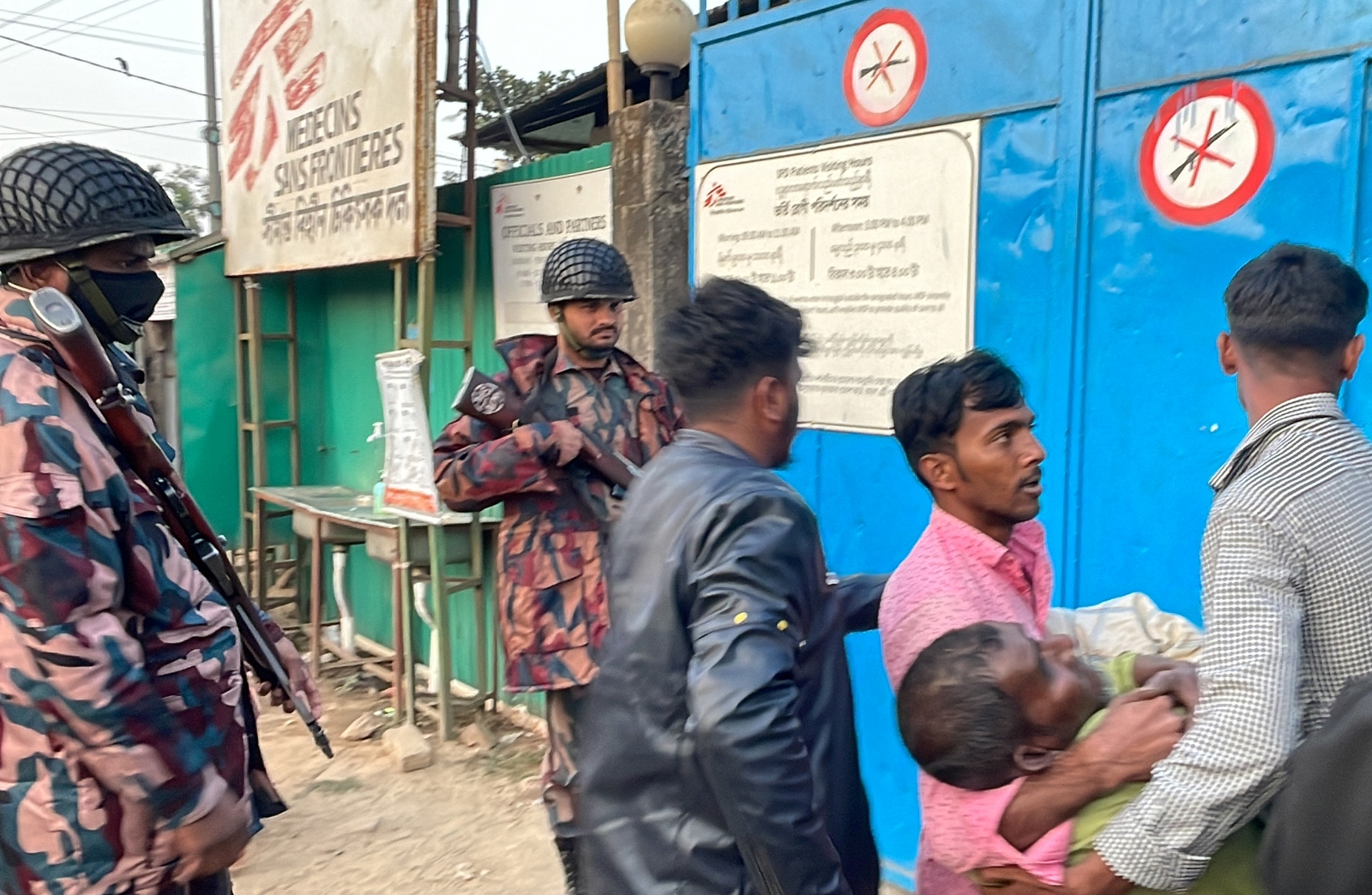A quick guide to the International Criminal Court and what its investigation over the exodus of Rohingya to Bangladesh might mean for Myanmar.
By JARED DOWNING | FRONTIER
ON SEPTEMBER 6, the International Criminal Court (ICC) stated that it had the authority to investigate Myanmar’s alleged deportation of Rohingya as a possible crime against humanity.
But what is the ICC? And how, exactly, does it work?
Simply put, the ICC is an international court established to investigate and prosecute human rights-related crimes. It orders arrests, conducts trials and imposes sentences like an ordinary court, which means, at least theoretically, that Min Aung Hlaing may one day find himself in a cell at the court’s detention centre.
What can the court do?
The 1998 Rome Statute that established the ICC allows it to prosecute four crimes: Genocide, which the Rome Statute describes as acts intended to “destroy in whole or in part a national, ethnic, racial or religious group”; Crimes against humanity, described as “a widespread or systematic attack against any civilian population”;War crimes, which are defined as “grave breaches of the Geneva conventions” in the context of an armed conflict; Crimes of aggression, which the ICC website calls “the use of armed force by a State against the sovereignty, integrity or independence of another State.”
For these crimes, the ICC prosecutes individuals, not governments, and sentencing ranges from monetary penalties to life terms in prison.
What is the court’s jurisdiction?
Support more independent journalism like this. Sign up to be a Frontier member.
The ICC can investigate and prosecute a crime that meets one of two criteria: It was committed within or by a national of one of its State parties, or it was formally referred to the ICC chief prosecutor by the UN Security Council.
Myanmar is not among the 120 countries that have signed the Rome Statute. (Other notable non-signatories include China, Israel and the United States.) However, the ICC recently stated that it can investigate the alleged forced deportation of Rohingya because it involved Bangladesh, which is a member of the ICC.
(However, the court would need a formal UN referral to prosecute the alleged war crimes and crimes against humanity in Kachin and Shan states described by the UN fact-finding mission).
How is a guilty verdict enforced?
As the ICC does not have its own police force, it relies on cooperation with partner nations or the UN to detain perpetrators and impose sentences. The ICC’s detention centre in The Hague is only used to detain suspects while they are on trial. Jail sentences handed down by the ICC are served in the prisons of member countries.
What happens now?
On September 18, ICC chief prosecutor Ms Fatou Bensouda began a “preliminary examination” of the case, the first step in the lengthy process that could end in a verdict and, if guilty, sentencing.
After a preliminary examination, the prosecutor may make a request for a formal investigation from the pre-trial chamber, which could eventually lead to a formal trial before a tribunal of three judges, who would issue a verdict.
The process is mired in bureaucracy and geopolitical dithering, and it can take years, or even decades for a case to proceed. One preliminary examination relating to alleged war crimes in Colombia began in 2004.
Thus far, the Myanmar government shows no signs of cooperating. It has “resolutely rejected” the move by the ICC and described the work of the UN fact-finding mission as “one-sided”.
Whether or not Min Aung Hlaing and his brass will have their day in court remains to be seen.
The journey of the ICC case
1. Preliminary examinations: The office of the prosecutor determines whether or not an allegation has enough evidence to initiate an investigation or if the alleged crime falls within ICC jurisdiction. If so, they must request approval from the pre-trial chamber to begin a formal investigation.
2. Investigations: The prosecution assembles evidence, identifies one or more suspects and finally presents its case to the judges of the pre-trial chamber and requests it to issue court summons and/or arrest warrants to the accused.
3. Pre-trial stage: If the pre-trial judges decide to summon the accused, they hear statements from the prosecution, the defence and the legal representation of the victims before deciding if the case should go to a full trial.
4. Trial stage: The prosecution tries to prove its case before a tribunal of three judges. If the judges find the accused guilty, they issue a sentence of monetary reparations and/or prison time.
5. Appeals stage: Both the prosecution and defense may appeal a verdict before five judges of the appeals chamber, who may uphold, amend or reverse the decision of the trial judges.
6. Enforcement of sentence: If the guilty verdict stands, the sentenced is enforced with the help of a partner state. Prison terms are usually not more than 30 years, although in rare cases the court may issue a life sentence.







